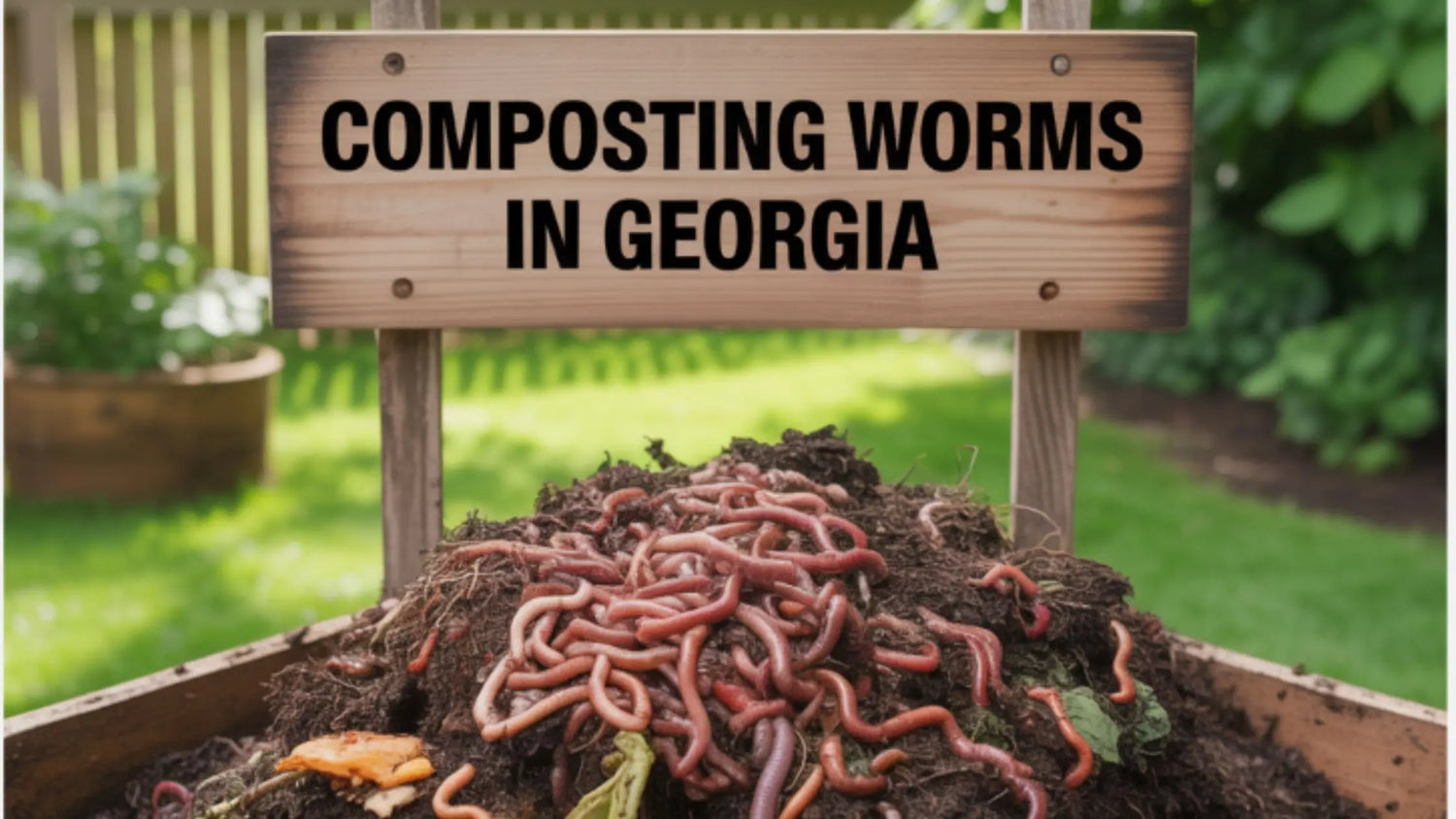Now that you have learned a little bit about worms, wouldn’t you like to learn a lot more, like where you could find these interesting insects?
Worms are living creatures that can be found in places like on the earth if you know what I am saying. Worms can be found in the dirt, in the soil where you are plants your beautiful flowers or where you are harvesting the delectable vegetables which you have planted and watered in your fabulous garden.
Worms are pretty much every place you could be looking for. You could find certain types of worms climbing trees or other types of worms living in the ground.
1. You care about the environment and want to recycle your leftover waste products. This is a great reason that will produce less trash and benefit you and the environment. This will also open a few doors to earning money and being able to produce some great fertilizer.
2. You want to make some money. Honestly, this is the reason why I started worm farming. Believe it or not, worms are worth a nice amount of money. Not only are worms worth money but their worm “poo” ( also called casting) is worth a lot of money. You can sell worms on the internet, to local stores, and local fishing shops. Worm castings can be sold almost anywhere even your local Walmart carries them. You will always be able to sell more worms and castings than you can produce. This is great if you're looking to set up a small business with virtually no overhead cost.
3. You love to fish, garden, or just want a good hobby. I know a lot of people who have set up a small worm farm just to supply worms for their fishing trips. I also have friends with small worm gardens that just use the castings in their gardens to make some of the best veggies I have ever eaten.
There are too many reasons to list here on why someone would want to start a worm farm. The best thing about worms farming is: anyone can do it. Even my 9-year-old has a small worm garden in our yard.
If you are looking to start your own worm garden you need the right resources. You can't just jump into it, without knowing what you are doing. There are many different aspects of worm farming. You can get over 5 varieties of worms, hundreds of different compost bins, and over 50 different types of dirt and substrate.
If you need any help, we're more than happy to help you.
Must Read : Double Your Composting Worms — 10 Tips That Actually Work (2025)
What is Worm Farming?
Worm farming, also called vermiculture, is the practice of raising worms to recycle organic waste into nutrient-rich compost. Instead of letting food scraps end up in a landfill, worms can transform them into a powerful soil conditioner known as worm castings. These castings are packed with nitrogen, phosphorus, potassium, and beneficial microbes that make plants grow healthier and faster.

Best Types of Worms for Farming
Not all worms are suitable for farming. Garden earthworms, for example, don’t process waste efficiently. Instead, the following species are most commonly used:
- Red Wigglers (Eisenia fetida): The most popular composting worm. They thrive in bins, reproduce quickly, and can eat half their weight in scraps daily.
- European Nightcrawlers (Eisenia hortensis): Slightly larger than red wigglers and excellent for both composting and fishing bait.
- African Nightcrawlers (Eudrilus eugeniae): A tropical species that produces high-quality castings. They require warmer conditions but are very productive.
If you’re just starting out, red wigglers are your best choice because they’re hardy, easy to care for, and widely available.
How to Start a Worm Farm (Step by Step)
- Choose a bin or container – Plastic storage bins, wooden crates, or commercial worm bins all work. Make sure there are air holes for ventilation and drainage.
- Add bedding – Shredded newspaper, cardboard, coconut coir, or aged compost. Bedding should be moist, not soggy.
- Add worms – Start with at least 1 pound of red wigglers for a small household bin.
- Feed your worms – Stick to fruit and vegetable scraps, coffee grounds, eggshells, and tea bags. Avoid meat, dairy, oily foods, or spicy leftovers.
- Maintain the right conditions – Keep your worm bin in a shaded spot indoors or outdoors. Temperature should stay between 55–77°F (13–25°C).
- Harvest castings – Every 2–3 months, remove the rich, dark worm castings and use them in your garden or houseplants.

Common Mistakes Beginners Make
Even though worm farming is easy, beginners often run into problems. Avoid these mistakes:
- Overfeeding: Too much food rots and creates odors. Only add scraps once the last batch is mostly gone.
- Wrong foods: Avoid meat, dairy, citrus, and onions—they attract pests and harm worms.
- Too much moisture: Bedding should feel like a wrung-out sponge. If it’s too wet, add shredded paper.
- Bin placed in direct sun: Worms are sensitive to heat. Keep them cool, shaded, and away from extreme temperatures.
- Starting too small: If you only use a handful of worms, it will take forever to build a healthy population.
Must Read : What To Feed Worms in 2025: The Complete Guide
About Meme’s Worms
Meme’s Worms is a trusted, family-owned worm farming company located in Valdosta, Georgia. Since 2018, the company has grown from a small laundry room project into a 22,000 sq. ft. worm farming warehouse. Today, Meme’s Worms is known nationwide for its commitment to quality, education, and sustainability.
The business specializes in supplying Composting Worms in Georgia and shipping them across the USA. Whether you’re a home gardener, a fishing enthusiast, or a commercial farmer, Meme’s Worms provides everything you need to succeed — from worms and castings to complete worm farming courses.
What makes Meme’s Worms stand out?
- 🪱 Live Delivery Guarantee
- 🌱 Worms adapted to Georgia’s environment
- 🚚 Nationwide shipping across the USA
- 🎓 Courses & mentorship for beginners and professionals
- ❤️ A family business that cares about customers and the planet
Service Area
While Meme’s Worms is proudly rooted in Georgia, its services extend nationwide.
- Local Customers in Georgia
- Pickup and delivery options in Valdosta, GA
- Educational farm tours for students and community groups
- Courses and in-person training at the Georgia farm
- Nationwide Across the USA
- Worms, worm castings, and kits shipped safely with a live arrival guarantee
- Online mentorship and courses so anyone in the USA can learn worm farming
- Commercial bulk orders available for large-scale growers
👉 If you’re looking for Composting Worms in Georgia or anywhere across the USA, Meme’s Worms has you covered.
Courses Offered by Meme’s Worms
Meme’s Worms is more than just a supplier — it’s a teaching hub for worm farming enthusiasts. Courses are designed for different levels, from hobbyists to commercial growers:
- 🐛 Worm Farming Course for Beginners – Learn the basics of worm care, composting, and small-scale worm farms.
- 🎓 Mentorship Group Coaching – Weekly coaching and group support to help you grow.
- 💼 Commercial Success Course – Training for scaling worm farms into profitable businesses.
- 🌿 Starters & Hobbyists Course – Perfect for anyone wanting a sustainable and fun hobby.
- 📞 One-on-One Consultations – Personalized calls with Meme to solve problems or create strategies.
- 🚜 Student Farming Tour (Georgia) – On-site educational tours for schools and groups.
Each course is designed to provide actionable knowledge and confidence, making it easier than ever to succeed with Composting Worms in Georgia or anywhere you live.



1 comment
Dwight Mobley
Would like to start a small worm farm for my fishing hobby and sell a few to my fishing buddies. My grand girl loves fishing and likes holding the worms.
Leave a comment
All comments are moderated before being published.
This site is protected by hCaptcha and the hCaptcha Privacy Policy and Terms of Service apply.